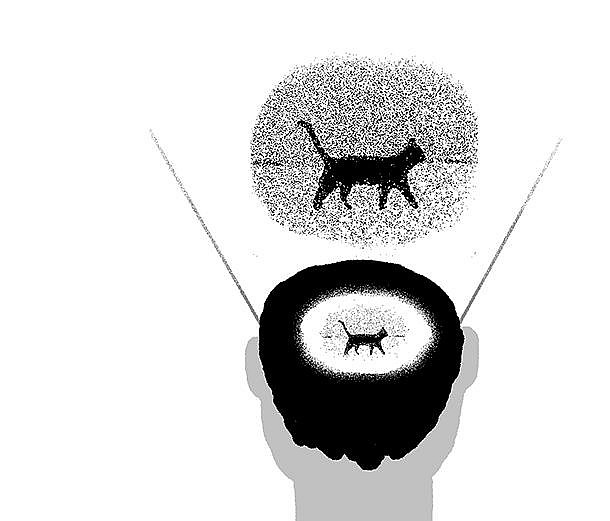What Is Déjà vu? Weird Dreams, Causes, How To Cope
 |
| What Is Déjà vu - Photo: KnowInsiders |
| Contents |
What is Déjà vu?
Déjà Vu is literally translated from French to mean “already seen.” It is a sense of having already seen something—coupled with knowing you haven’t actually seen it, which is why it catches many people so off guard. It is thought to be the equivalent of a small brain “glitch,” with two streams of thought colliding.
“Déjà vu” describes the uncanny sensation that you’ve already experienced something, even when you know you never have.
Say you go paddleboarding for the first time. You’ve never done anything like it, but you suddenly have a distinct memory of making the same arm motions, under the same blue sky, with the same waves lapping at your feet.
Or perhaps you’re exploring a new city for the first time and all at once feel as if you’ve walked down that exact tree-lined footpath before.
| Although it may sound strange at first, this phenomenon of dreaming about the future happens more often than you think. It could be previous dreams where you accidentally encountered similar events in real life. It is the delay in the brain's processing of information that makes you feel like you have "seen the future" before. According to statistics, up to 60-70% of the world's population has experienced this phenomenon at least once in their life. Let's find out what dejavu means and the mysteries surrounding this interesting phenomenon. |
| Do you know..? Overall, the amount of times someone experiences deja vu decreases after the age of 25. One survey found that two-thirds of adults claim to have experienced deja vu at least once. Travelers experience deja vu more than those that don't. It's likely because travelers experience more memorable and notable places. |
How Does Déjà Vu Happen?
 |
| Photo healthline |
It is believed that déjà vu may be the result of two different streams of awareness colliding: the experience of recognizing a current situation, alongside the feeling that this is an inaccurate recollection. A key feature is that the person realizes that they have not actually seen this before.
Sometimes, what happens is really a matter of split perception4 and someone is processing a sight twice because they may have been distracted or their vision was obstructed for some reason.
The second perception, immediately after the first one, becomes the one that is consciously experienced—but it feels unfamiliar because we are not cognizant of the first experience, which we only partially processed.
READ MORE: 10 Dreams Signaling You'll Have Unbelievably Lucky
How Many Types Of Déjà Vu?
Though the actual feeling of déjà vu is the same across people with healthy brains and those with neurological conditions, different things are happening in the brain during each of these types.
Those who do experience it more regularly show less grey matter than those who don’t.5Grey matter is the outermost layer of the brain, and it is responsible for controlling movement, memory and emotions. Typically, the more grey matter a brain has, the more effective it is.
In those with neurological conditions, three parts of the brain are impacted: the hippocampus, parahippocampal gyrus, and temporal neocortex—areas that are associated with forming and retaining memories.
For those with epilepsy and déjà vu, alterations in memory circuitry have been observed, meanwhile, alterations in emotional circuitry are seen in “healthy” individuals experiencing déjà vu. Déjà vu is thought to perhaps be abnormal signaling within the medial temporal lobe, which governs memory processing, particularly visual memories.
The conditions that might experience more déjà vu than those with a healthy brain include:
• Schizophrenia
• Epilepsy
• Anxiety
• Vascular dementia
Some other types you might experience:
• Déjà entendu: already heard
• Déjà éprouvé: already experienced
• Déjà fait: already done
• Déjà pensé: already thought
• Déjà raconté: already recounted
• Déjà senti: already felt emotionally or already smelled
• Déjà su: already known (the knowledge of)
• Déjà trouvé: already found
• Déjà vécu: already lived through
• Déjà voulu: already wanted
READ MORE: Dreams About Cats: Good or Bad Omen, According to Eastern Spirituality
What leads to Déjà vu?
 |
| Photo healthline |
Researchers have statistically found that there are a number of specific factors that affect the occurrence of Deja vu experiences such as:
• Age: Déjà Vu is most common in young people and less common as you get older.
• Gender: Men and women seem to experience Déjà Vu roughly equally.
• Living conditions: According to some studies, Déjà Vu is more common among people with a better standard of living or higher education.
• Frequency of Travel: Those who travel a lot are also more likely to experience Déjà Vu often.
• Stress: Multiple results have also shown that Déjà vu is more common when you are in a state of fatigue or stress.
• Treatment: A study published in 2001 found a case of a 39-year-old healthy man who experienced frequent deja vu while taking amantadine and phenylpropanolamine to treat influenza.
What should you do when experiencing Déjà Vu?
Déjà Vu is very common and almost everyone will experience it at some point in their life. However, if you still consider this as a mystical phenomenon that causes feelings of fear and anxiety, you should apply the following tips.
1. Keep calm
The familiar feeling of experiencing an event that has certainly never happened to you before can overwhelm you, now try:
Deep breathing: You can overcome a state of fear by taking deep breaths to regain your composure. Just by practicing simple breathing, you will clear your mind, get mental balance quickly.
Focus your thoughts on the present: You can overcome the discomfort of experiencing Deja vu if you focus your thoughts on the present. Think about what you're doing or drink some coffee to wake up.
Keep a diary: It is also a good idea to start recording memories of your Déjà vu experience. Accordingly, you record the events happening around and how you feel (when, where, what happened, who was there …).
Share your experience: Some studies have shown that 65% of young people have experienced Déjà vu at least once in their lives. Don't be afraid to share with your friends or family to find empathy because they may have or are going through the same feeling as you.
2. Self care
Déjà vu can be seen as a sign that the body is trying to warn you of a certain health problem. So try making some changes in your daily lifestyle to notice the change.
Reduce stress: According to the results of many studies, Deja vu occurs more often when you are stressed. Try doing some simple measures like meditation or yoga to relieve the pressure you are experiencing.
Get more rest: Deja vu may be linked to insomnia and fatigue. Therefore, to deal with this situation, make sure you have a reasonable rest time by going to bed early and getting enough sleep every day.
Re-examine oral medications: Many studies show that certain medications have the ability to increase hormones such as the hormone dopamine which increases the likelihood of experiencing Déjà vu. Please inform your doctor about the frequency of Déjà vu to receive more suitable treatment solutions.
3. Make the most of Déjà vu
Many studies have found that people who have experienced Déjà vu have better memory abilities than those who have less experience. So you can completely use the phenomenon of Déjà vu to practice your memory ability.
Try to remember events or memories that take place from everyday events. Paying attention to details in everyday life such as noticing smells, shapes, smells, sounds, or emotions can help improve memory. For example, when you go swimming, pay attention to the feeling of relaxation when you are immersed in the cool water or you have had an interesting story at the pool, for example.
Déjà vu has been studied for a long time and although the scientific community has offered many explanations, all are still limited to quite vague hypotheses. However, there is still no research to show that Déjà Vu is harmful to your health. So why not feel comfortable experiencing this strange feeling or even take advantage of Deja vu to boost your memory!
 Most Common Dreams In Every Country In The World - According to Google Search Most Common Dreams In Every Country In The World - According to Google Search The research team analyzed Google search data to reveal the dream obsessions of Americans, Australians, French, Germans, Vietnamese, etc. Take a look at some of ... |
 Top 5 Dreams Often Bring Luck in Fortune, According to Spirituality Top 5 Dreams Often Bring Luck in Fortune, According to Spirituality If you dreamed of one of these 5 dreams, congratulations, you will be extremely lucky in fortune in the near future. |
 6 Dreams Predict Upcoming Love - According to Spirituality 6 Dreams Predict Upcoming Love - According to Spirituality If you dream of the following, then love is coming to you. |
























